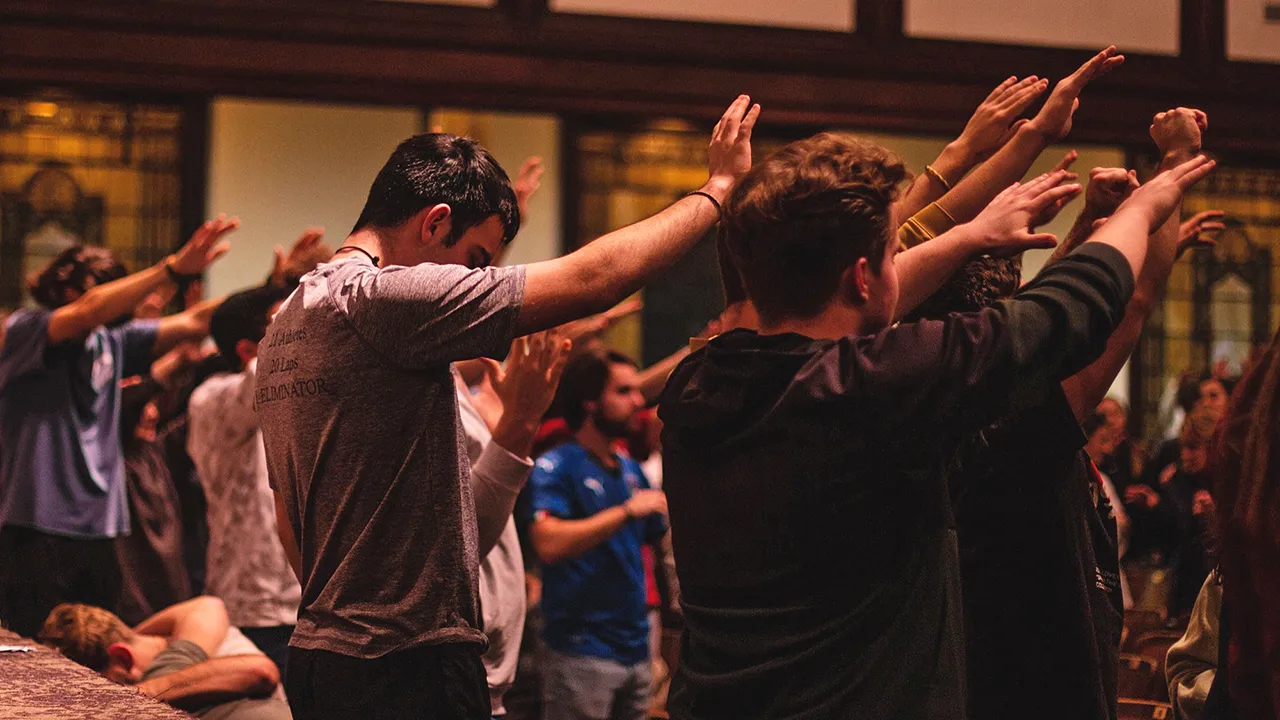There’s something quietly devastating happening in the world right now.
Charitable giving is on the decline—globally.
Nonprofits are shrinking and fundraisers are working twice as hard for half the result.
For those of us who’ve spent time monitoring what is happening with generosity, it’s more than a challenge—it’s a heartbreak.
For many, the temptation is to shout louder.
Make more appeals.
Run more campaigns.
Squeeze more from the same loyal donors who keep showing up.
But if I’m honest, that’s just rearranging the deck chairs on the Titanic.
Because the problem isn’t just emotional fatigue—it’s systemic.
Generosity, as we’ve known it, is under pressure. The old model is fraying at the edges. And unless we find a new way to fund impact, the nonprofit sector will keep bleeding talent, trust, and potential.
Here’s something I think needs to happen: we need more young Christian entrepreneurs to start more social enterprises.
Not just because it’s trendy.
Not just because it’s “purpose-driven.”
But because it’s the only viable pipeline I can see to get more money flowing back into the causes that matter—and to rebuild trust in giving.
Let me explain.
The pipeline is drying up
It’s not that people don’t care anymore. Far from it.
Young people, in particular, care deeply about justice, climate, equity, and impact. But they’ve grown up in a world where giving feels like a gamble. They’ve seen scandals. They’ve questioned overheads. They’ve lost faith in institutions. Plus, they’ve grown up in a society and culture where it’s sexier to spend on yourself than to give to someone in need.
This happens when we live in culture and in society that goes without need for too long – where prosperity is experienced for far too long, prosperity becomes the normal. And we end up wanting it more and more.
And in an era where every dollar counts, the idea of “giving it away” without knowing where it goes or whether it works… it just doesn’t fly like it used to.
What we’re seeing is a shift from pure donation to value-aligned spending. Some people still want to make a difference—they just want to do it through how they live, how they buy, and how they build.
That’s where I think young Christian entrepreneurs can come in.
Kindness, meet commerce: a story from the inside
When I founded kindpeople., it wasn’t to start a fashion label. It was to start a movement.
Every garment we sell raises funds for charity. Simple as that. Not as an afterthought, not as a once-a-year donation—but as part of the very DNA of the business.
It’s not perfect. It’s not huge. But it’s intentional. And that matters.
Because what we’re doing isn’t just raising money—we’re restoring faith. Faith that you can wear your values. That business can be beautiful. That commerce can be a conduit for compassion.
And if one little brand with a big heart can do it—imagine what could happen if hundreds, thousands, of others did the same.
Imagine the scale of generosity we could unlock.
Why this matters more than ever
Nonprofits aren’t failing because their missions aren’t good. They’re failing because the systems that support them haven’t evolved. The old model—relying purely on donations, grants, and goodwill—isn’t enough to survive the modern attention economy.
But here’s the good news: I think young Christian entrepreneurs can be/are wired for this moment.
They’re values-driven.
They’re creative. They’re digitally native.
And they’re craving purpose.
They just need permission—and a bit of provocation—to build something bold.
Social enterprise is how we rewire the economy for good.
It’s how we shift from scarcity to sustainability.
From guilt-giving to joy-giving.
From burnout to beautiful business.
What this looks like in practice
Let’s get practical. Starting a social enterprise doesn’t mean you have to sell t-shirts or start a tech company. It just means you build a business with a baked-in mission to give back—financially, operationally, or relationally.
It could look like:
- A Christian-run café that directs 20% of profits to homelessness outreach
- A software company that builds free tools for mental health charities
- An events business that donates ticket revenue to local churches
- A creative agency that offers pro bono work to purpose-led clients
Whatever the model, the mindset is the same: business as a vehicle for generosity.
This isn’t optional—it’s essential
We can’t rely on the same few donors to keep carrying the weight of every good cause. It’s not fair, it’s not sustainable, and it’s not working.
The future of generosity depends on building new rivers—not just deeper wells.
That means giving young Christians the encouragement to think entrepreneurially. It means removing the false divide between “business” and “mission.” It means teaching stewardship not just as charity, but as strategy.
Because generosity doesn’t die when people stop caring. It dies when people stop believing their giving matters.
Social enterprise reignites that belief.
And in a time when so much feels fractured, that’s the kind of fire we need.
The challenge (and the invitation)
To every young Christian who’s ever had a spark of a business idea, I want to say this:
Don’t wait.
Don’t wait for funding. Don’t wait for permission. Don’t wait until you’ve got the perfect pitch deck or the right logo.
Start now. Start scrappy. Start scared, if you have to. But start.
Because you’re not just building a business—you’re rebuilding the culture of generosity for the next generation.
And we need you.
If you want to start a business but don’t know how to get started—I am here to help. Call me if you want me to coach you. My number is +61 402 319 692. Carlos
